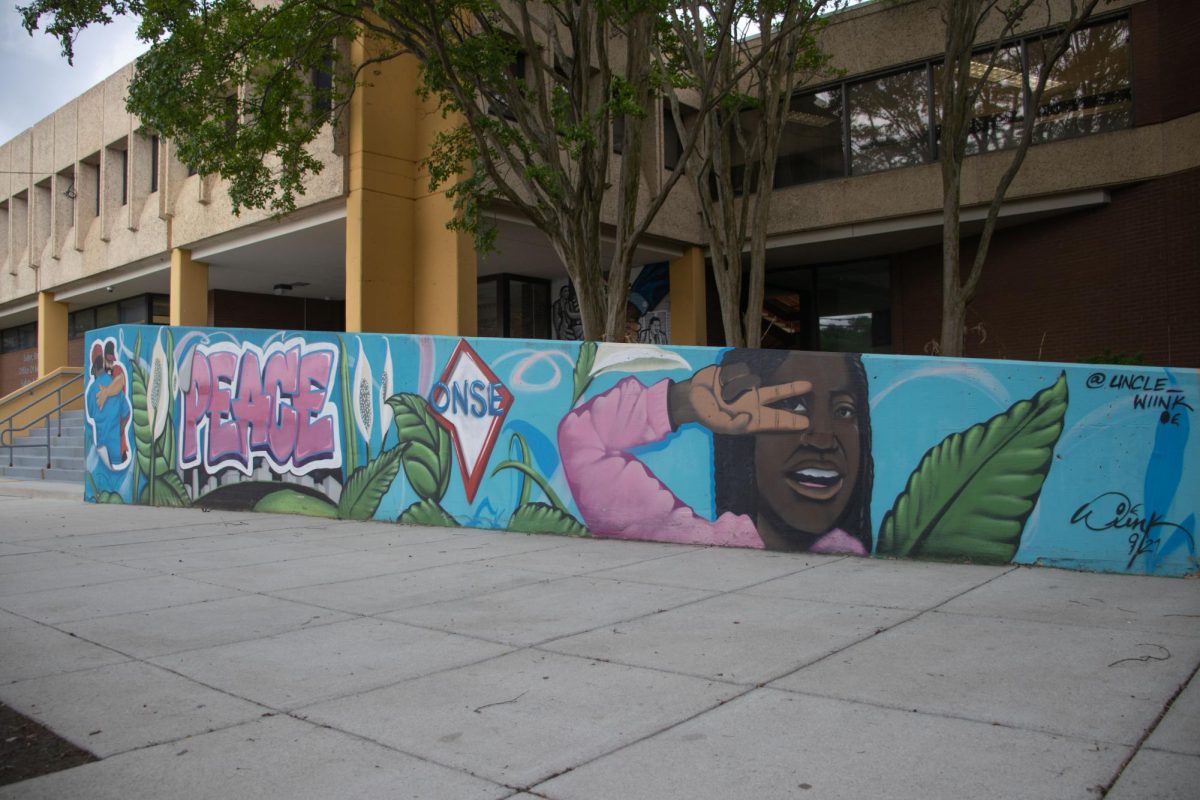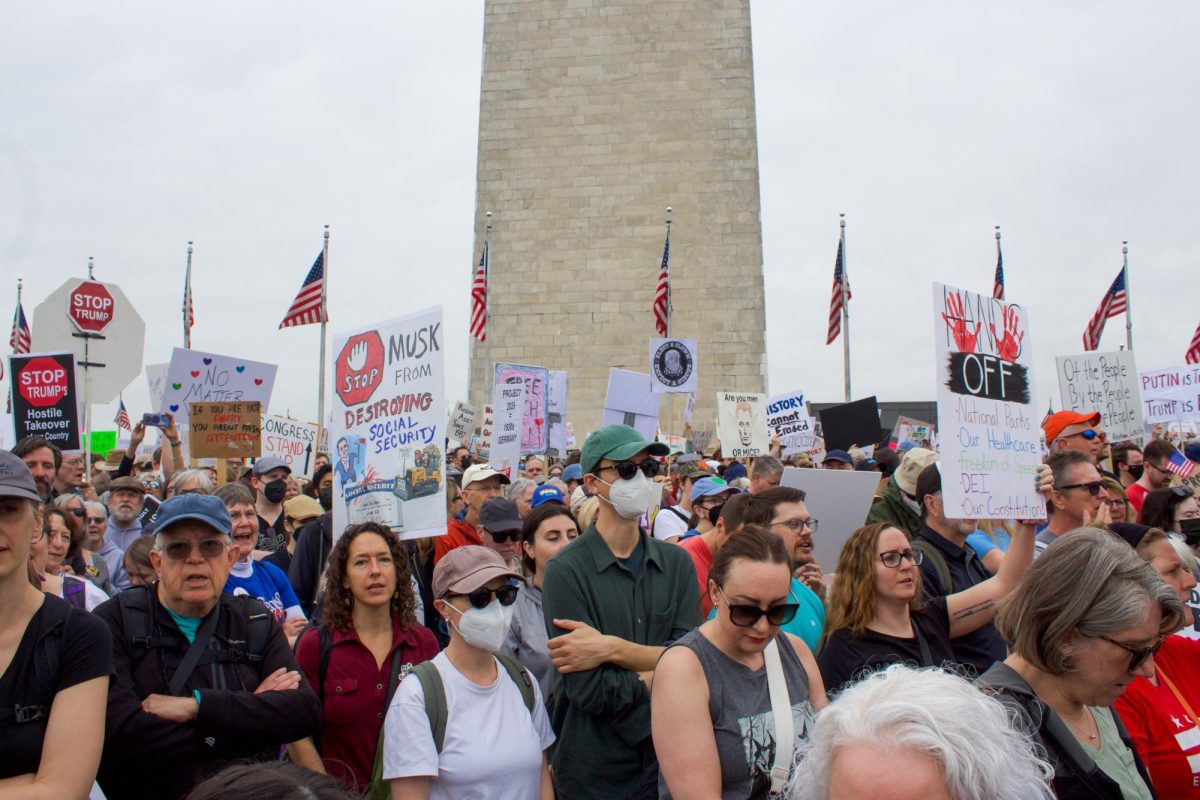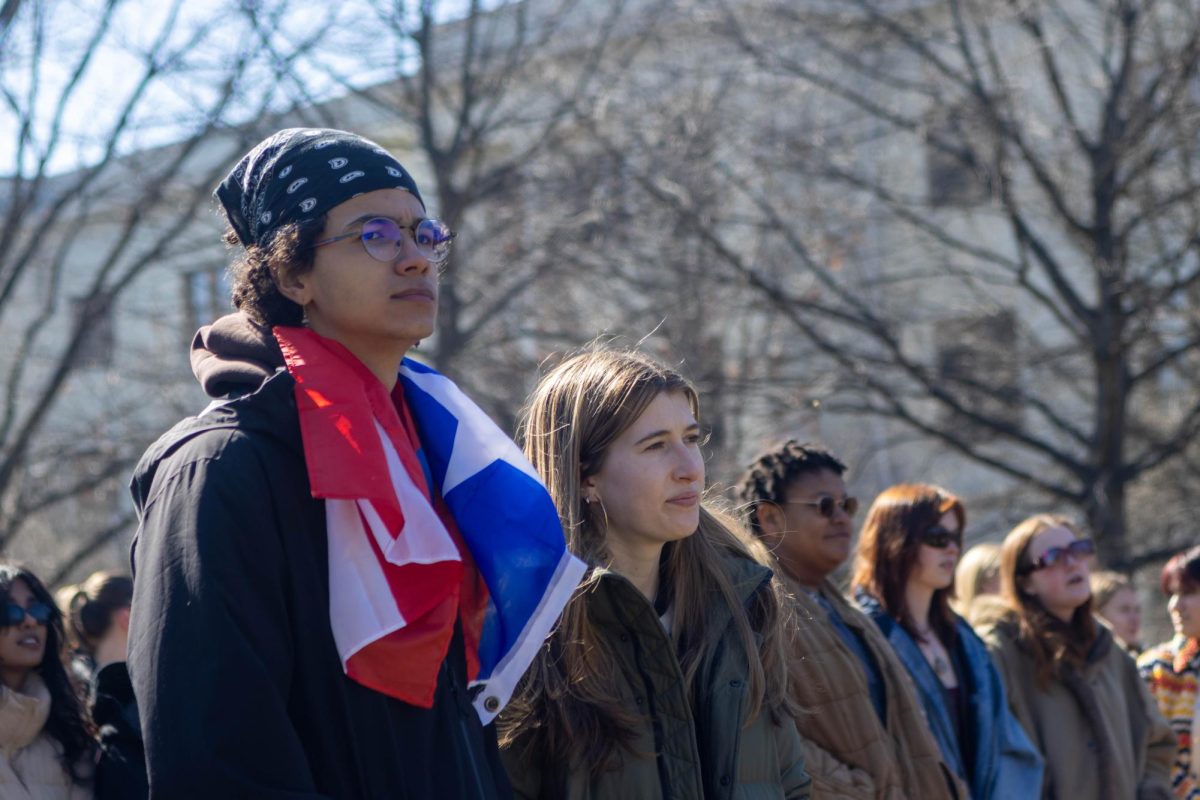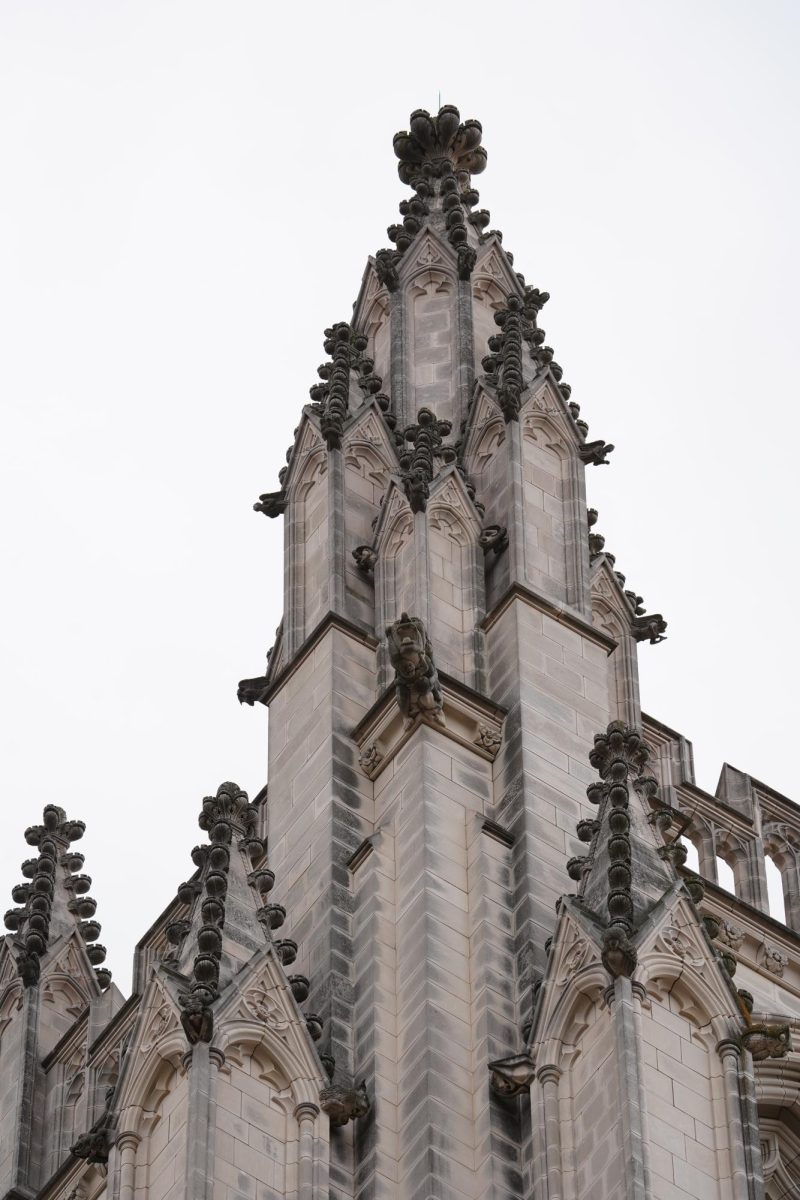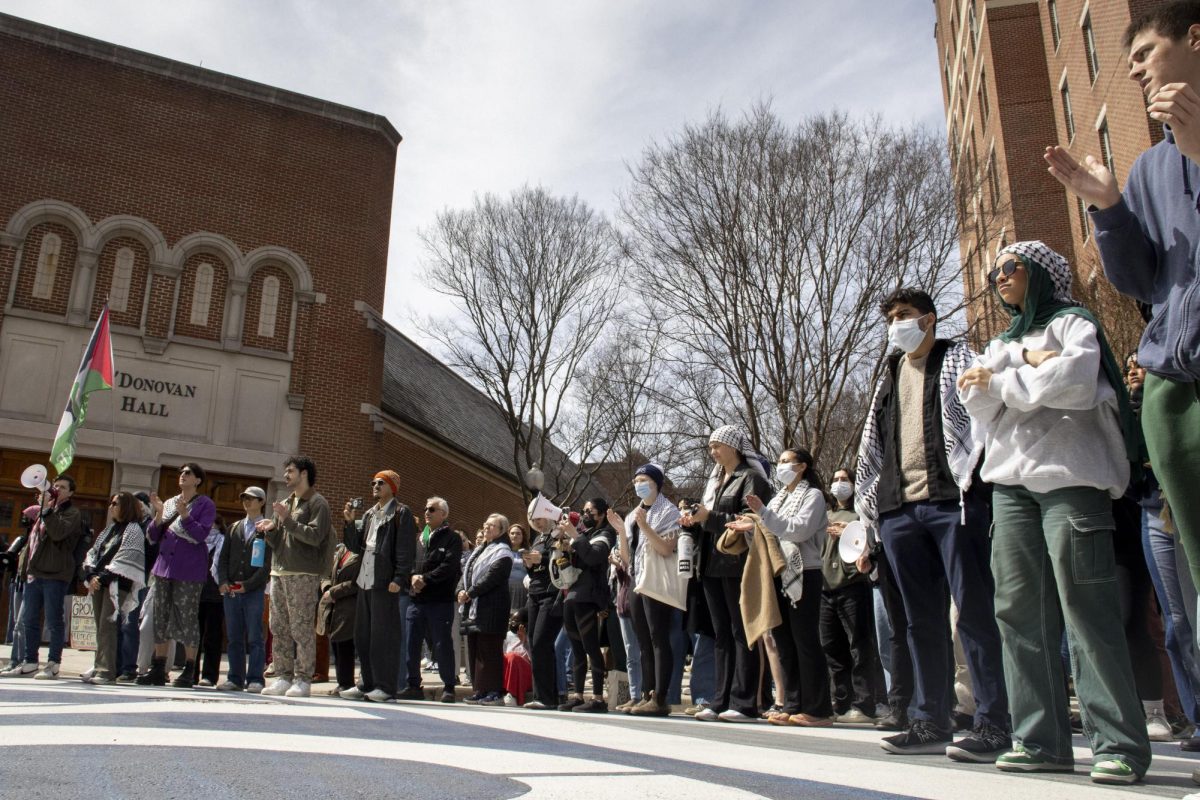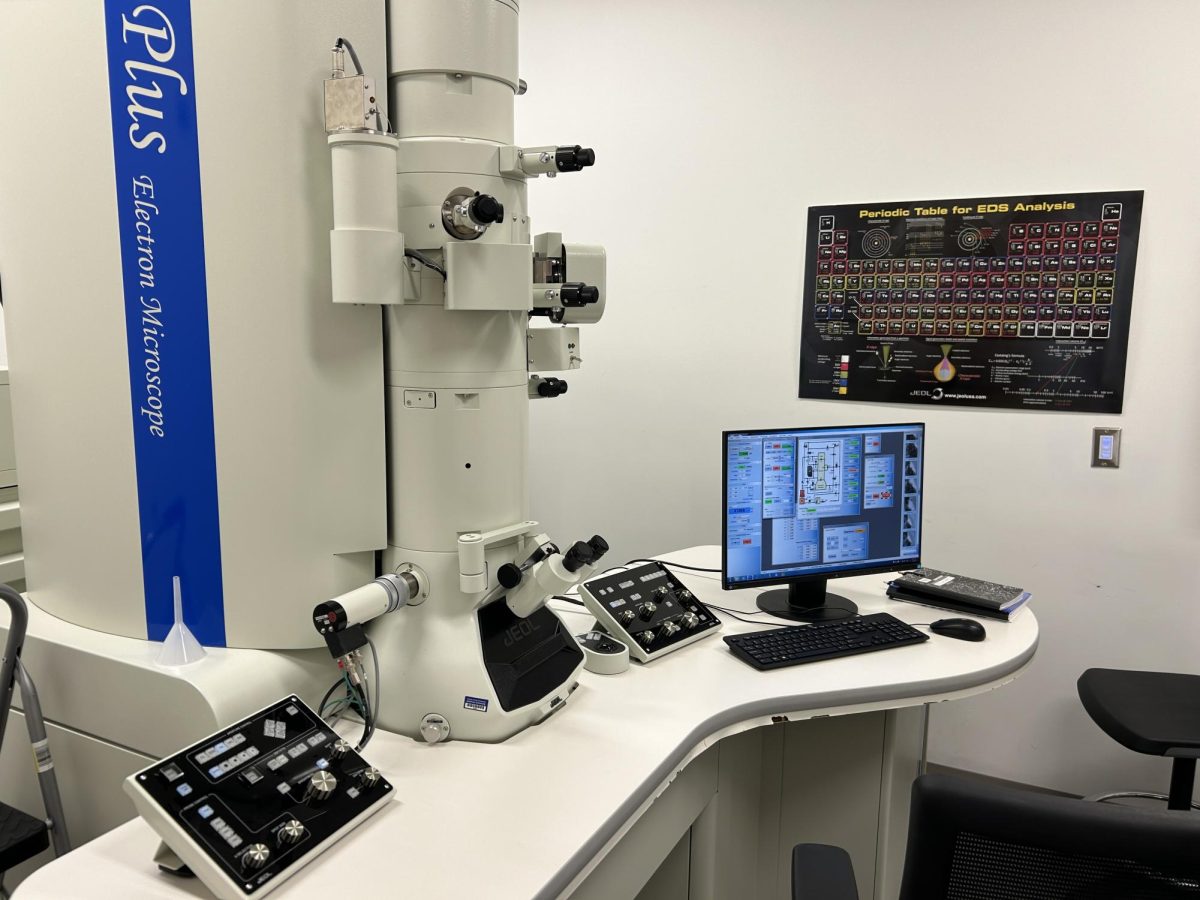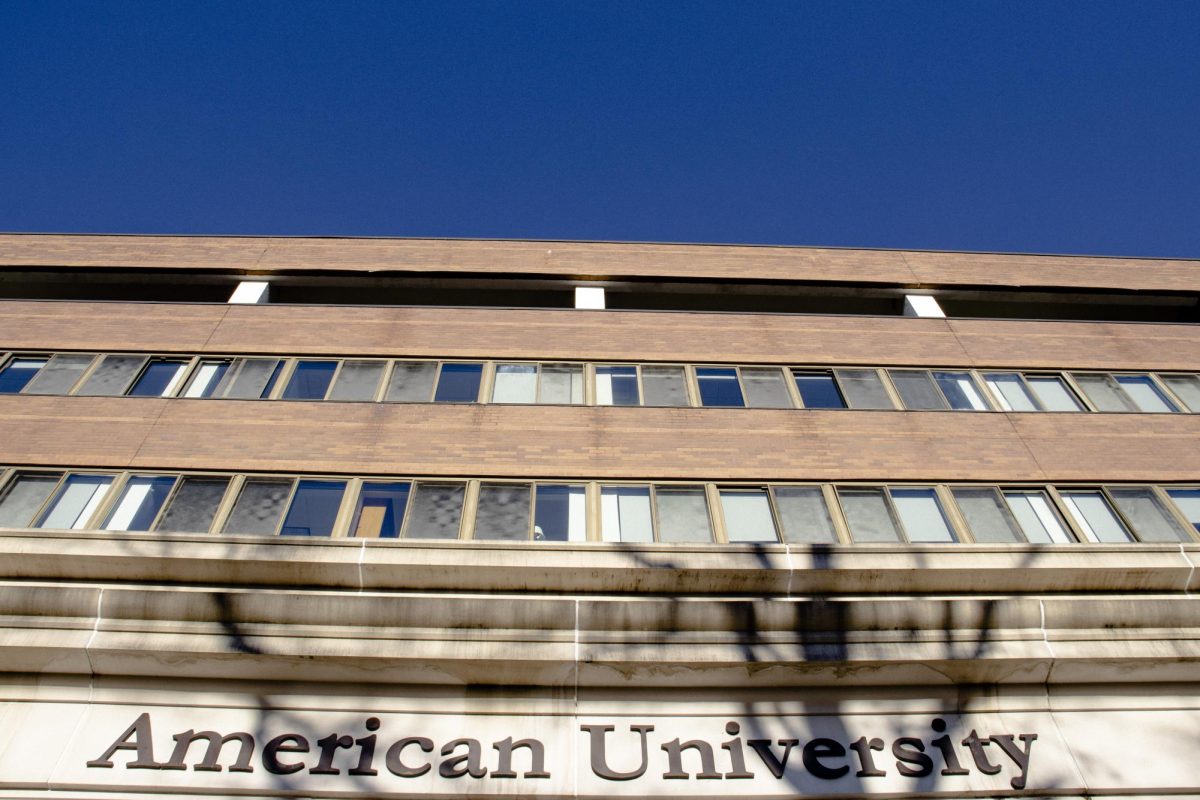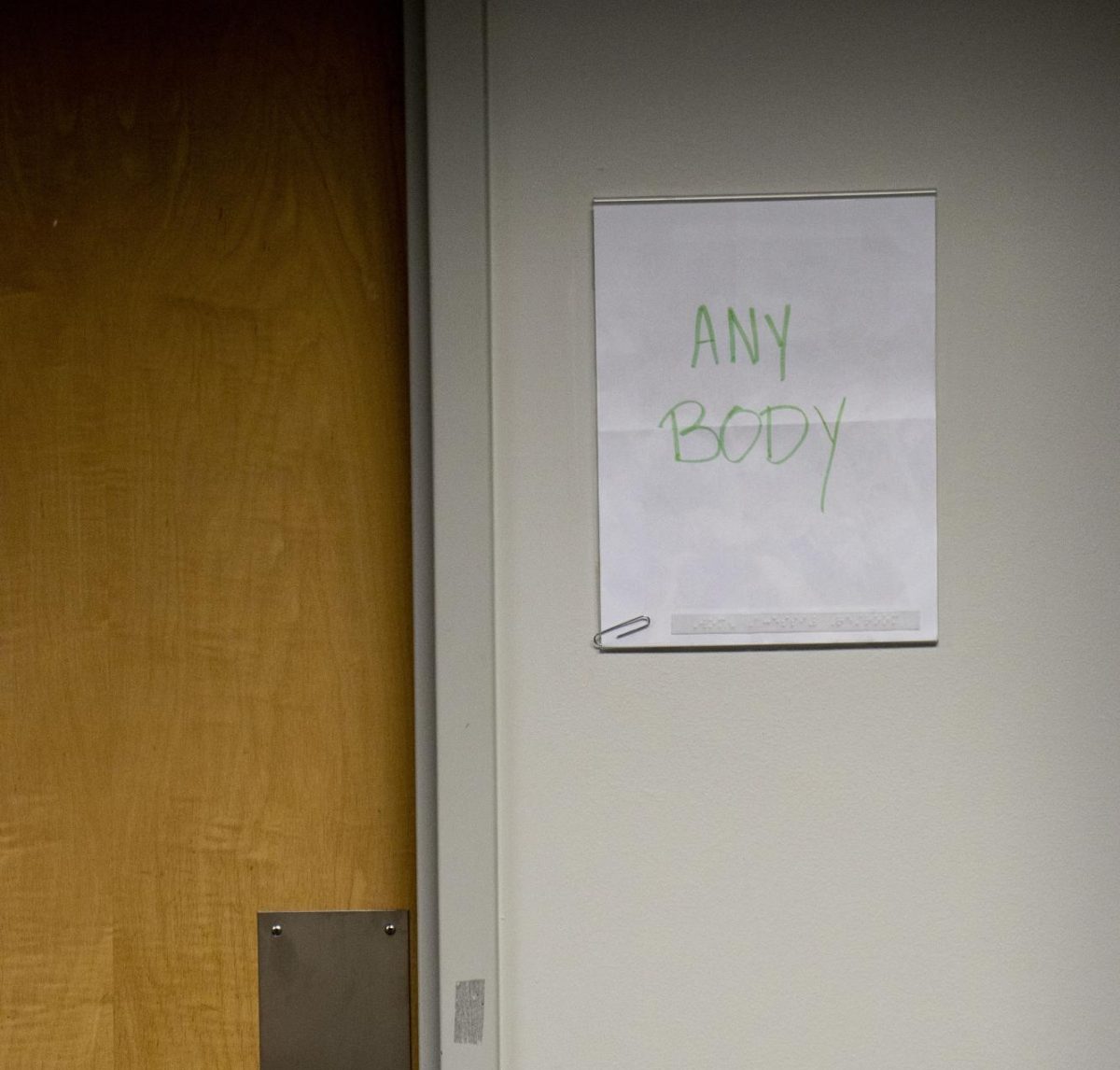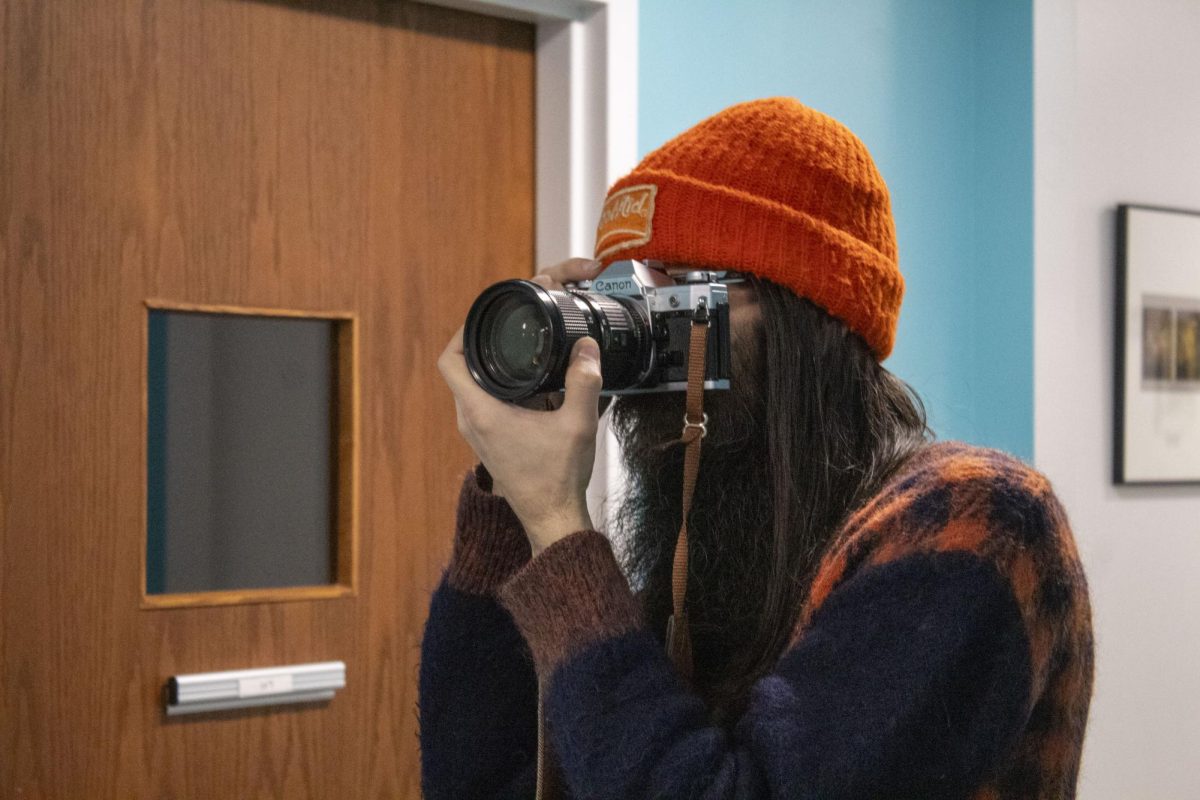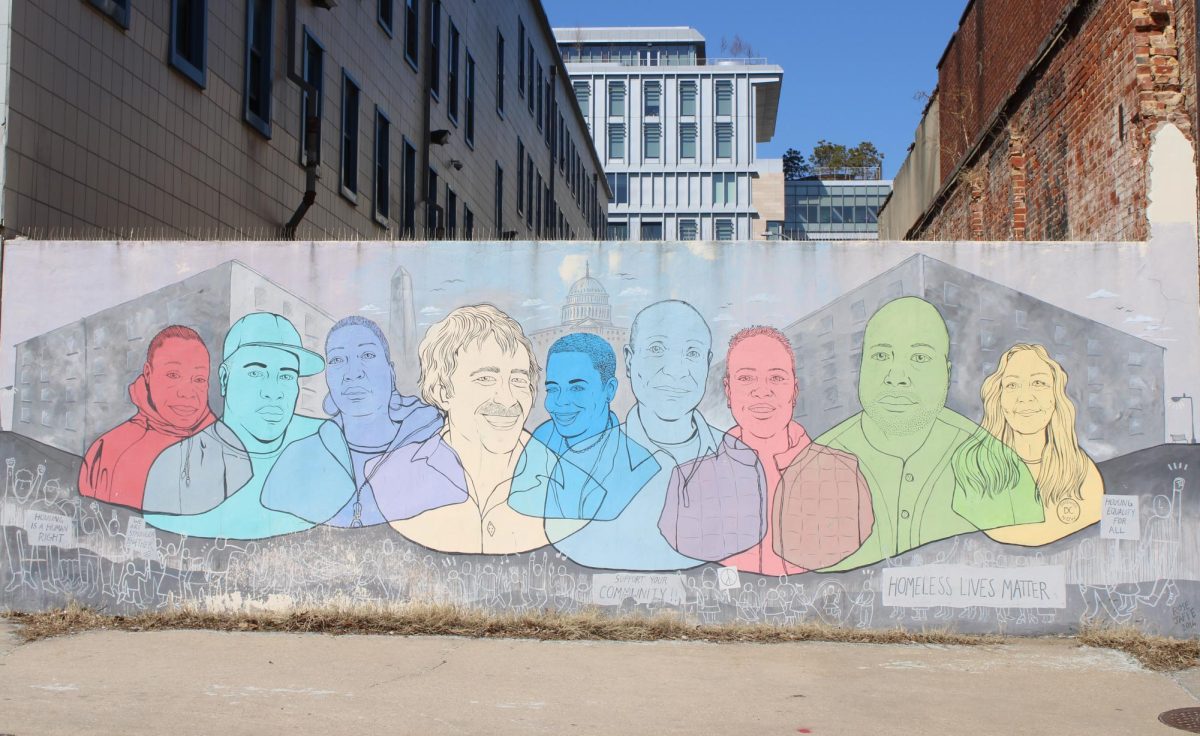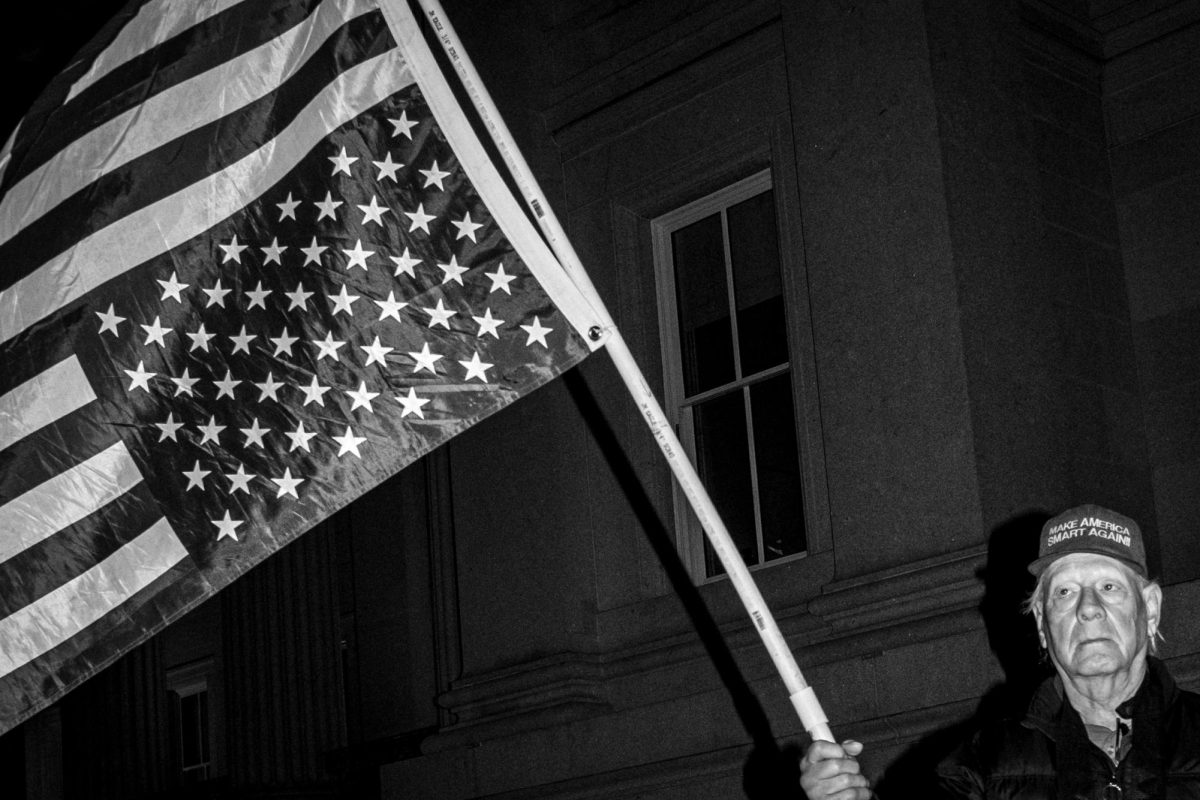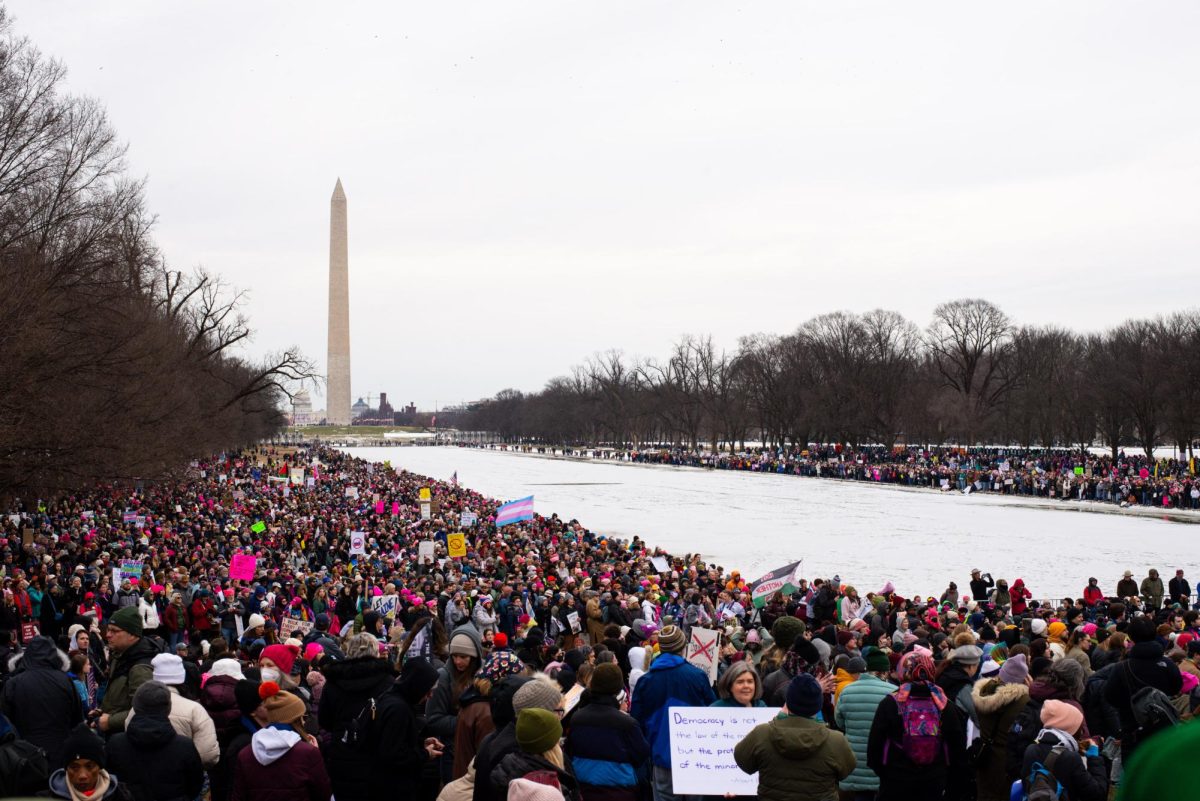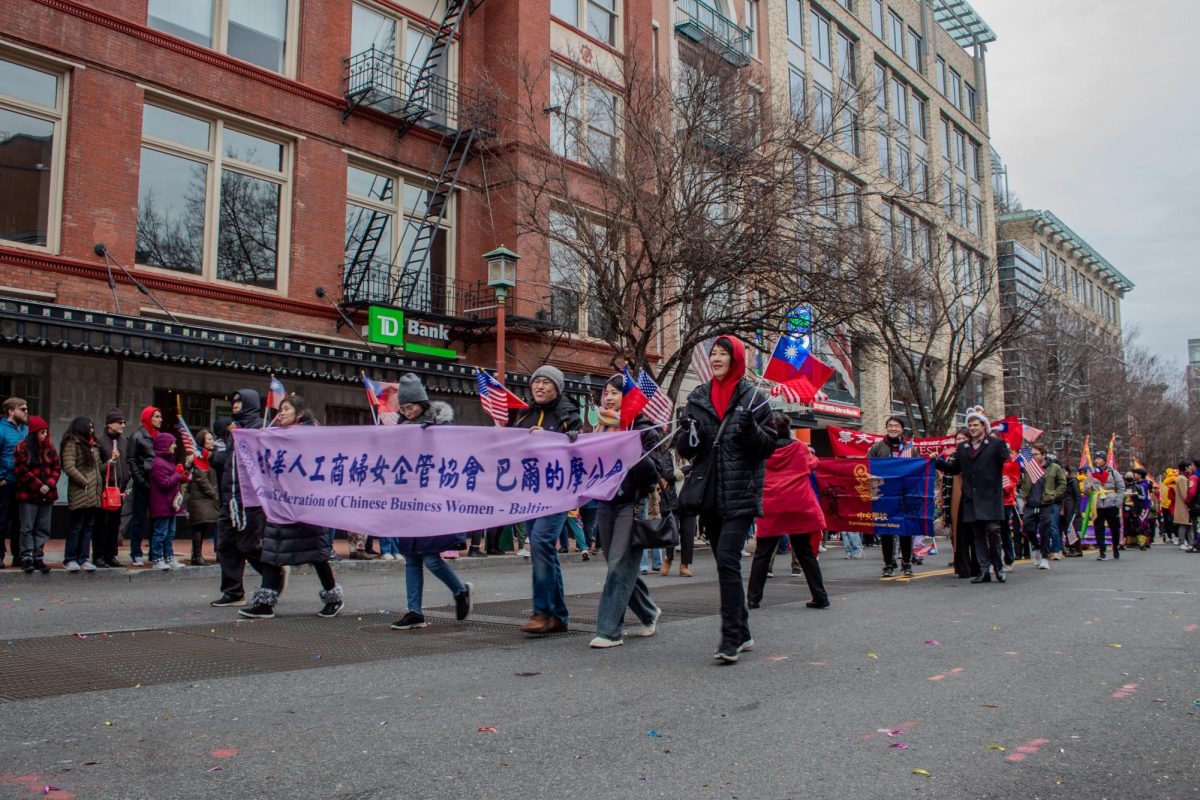Before leaving office, former President Joe Biden signed a bill approving the construction of a Women’s Suffrage Monument on the National Mall, the first monument on the Mall to honor the suffrage movement.
The Women’s Suffrage National Monument Foundation advocated for the monument starting in 2020, focusing on the gap it would fill in the National Mall, according to Kimberly Wallner, executive vice president of the Foundation. Now that Biden approved the location in January, advocates are aiming to answer questions of designs, representation and where in the Mall to place it.
“Our hope is that it will be completed and unveiled to the American public in 2033,” Wallner said.
While other monuments on the National Mall feature women, Kate Lemay, a member of the advisory council for the Women’s Suffrage National Monument Foundation, said that these monuments focus on specific historical events and not the women themselves. The Vietnam Women’s Memorial, for example, honors the war rather than the nurses it depicts, she said.
“It was an afterthought, kind of, to the Vietnam veterans,” Lemay said. “Those women are not named. They are not people that we can actually attribute to having a true biography.”
Lemay said she wants the monument to honor suffragists and their impact, as opposed to being unknown figures who represent concepts like those in the Vietnam Women’s Memorial.
“My argument is, and I think a lot of the advisors feel this way, would be to point out the Suffrage Memorial as like a commemoration of real women, real activism, radical thinkers,” she said.
Members of Congress supported the bill after the Foundation investigated how women are represented in Washington, according to Wallner.
“We ended up kind of doing an audit of what is on the National Mall,” she said. “In that, we found that there are 40 monuments and memorials and historic sites on the National Mall in, the technical term, which they call the reserve, and none of those are dedicated to American women’s history.”
Wallner said the monument will focus specifically on the Women’s Suffrage Movement of the late 19th and early 20th centuries that led to the creation of the 19th Amendment.
“We just spent the time making the case on merit,” Wallner said. “Talking about, for one, why this history is important, why monuments representing significant chapters of American history are important on our National Mall, and why this one being left out is problematic.”
Monuments of women on the Mall currently only focus on their relationships to men, not honoring women’s own achievements. The new monument will attempt to rectify this misrepresentation.
The Foundation brought their findings to congressional sponsors, including Rep. Debbie Lesko, Sen. Marsha Blackburn and Sen. Tammy Baldwin. These sponsors agreed that there should be more female representation on the Mall and began work to introduce the bill, according to Wallner.
The monument’s design has not yet been finalized, according to Wallner. She said the Foundation would send out a call for artists after a specific site on the mall has been selected. The call will be sent out in 2026, according to the foundation’s current plan.
Graziella Gulli, fundraising director for American University’s Students for Reproductive Justice group, said she feels the idea to create a Suffrage Monument recognizes women’s accomplishments and helps them feel included in our nation’s history.
“Just having a space where we can just feel celebrated in our gender is important,” Gulli said. “And I think, especially with the state of the world — and I know we’re always in unprecedented times — but I feel like so much is under attack right now. And I do think that this could be something really awesome if it’s handled with care.”
Gulli added that she hopes the monument will include suffragists of color who are often excluded from conversations about suffrage.
“I hope there can be conversations had about different trailblazers,” she said. “Like, different Black female trailblazers that did so much for women’s rights, but also Black rights and other minority group rights.”
Colorado Rep. Joe Neguse introduced legislation for building a Suffrage Monument in 2019, according to Congress’ page for the bill. Differing from the bill later approved by Biden, this bill approved the building of a National Women’s Suffrage Monument without designating its position on the National Mall. President Donald Trump signed the bill into law during his first term in December 2020, according to the Congress page for the bill.
To place a monument on the National Mall, organizations require an exemption from the “Commemorative Works Act.” The act preserves the open spaces of the National Mall by preventing excessive structures from being built.
In March 2023, Baldwin introduced legislation to gain that approval: the “Women’s Suffrage National Monument Location Act.” That is the bill Biden signed into law Jan. 4, according to Congress’ page for the bill.
“Over a century ago, women were finally granted the right to participate in our democracy — but this milestone was only made possible through a decades-long fight led by women of all backgrounds, including those of color who were still denied the right to vote after the 19th Amendment was ratified,” Baldwin said in a statement to AWOL. “I am proud to have worked with my Democratic and Republican colleagues to honor the suffragists and all those who fought for women’s right to vote with a monument in its rightful place — the National Mall.”
The bill approved the monument to be placed within the Reserve — the cross-axis of the Mall running from the Lincoln Memorial to the Jefferson Monument. Before Congress passed the Act on Dec. 20, 2024, Blackburn, a co-sponsor of the senate version of the bill, said she would prefer the monument to be placed in Constitution Gardens, according to a transcript of the address. That would place the monument between the World War II Memorial, the Vietnam War Memorial, the Reflecting Pool and the White House.
“Constitution Gardens is a 50-acre space dedicated during our Nation’s bicentennial as a living memorial to the founding of the Republic,” Blackburn said at a Senate meeting in 2024. “And in this garden, it is appropriate that we recognize the work of women to help preserve the freedoms and the liberties that we have in this nation.”
Sen. Michael Bennet, a co-sponsor of the senate bill, said in a statement to AWOL that the legislation represents a history of working for equality.
“American history has always been a struggle between the promise of equality and the reality of inequality, and this bipartisan legislation commemorates our long and enduring journey toward securing equality for all,” Bennet said. “For centuries, we have witnessed historic calls for progress on the National Mall, and this monument to women’s suffrage deserves this most dignified location for its home.”
Blackburn declined a request to comment. Co-sponsors Sen. Cynthia Lummis, Sen. Tammy Duckworth, Sen. Kirsten Gillibrand and Sen. Jeanne Shaheen did not reply to requests for comment.
Wallner said the Foundation hopes to finalize the location this year. According to her, the Foundation must receive input and approval from the National Park Service, the National Capital Planning Commission and the Commission on Fine Arts to select a location and design for the monument.
“We are working with these planning agencies to kind of weave this story into the American history stories over the National Mall,” Wallner said. “We have set an audacious goal of finalizing that fight this year.”
When the location is decided and the monument is built, Lemay said that Washington residents and visitors may change the way they perceive the past.
“These landscapes can impact how people understand history,” she said. “That is the impact that a memorial or monument can really have. It can change how people think, and they don’t even understand how it’s working on them. But it’s providing a lens through which they understand a history.”
Editing by Julia Cucchiara, Caleb Ogilvie and Alexia Partouche.



